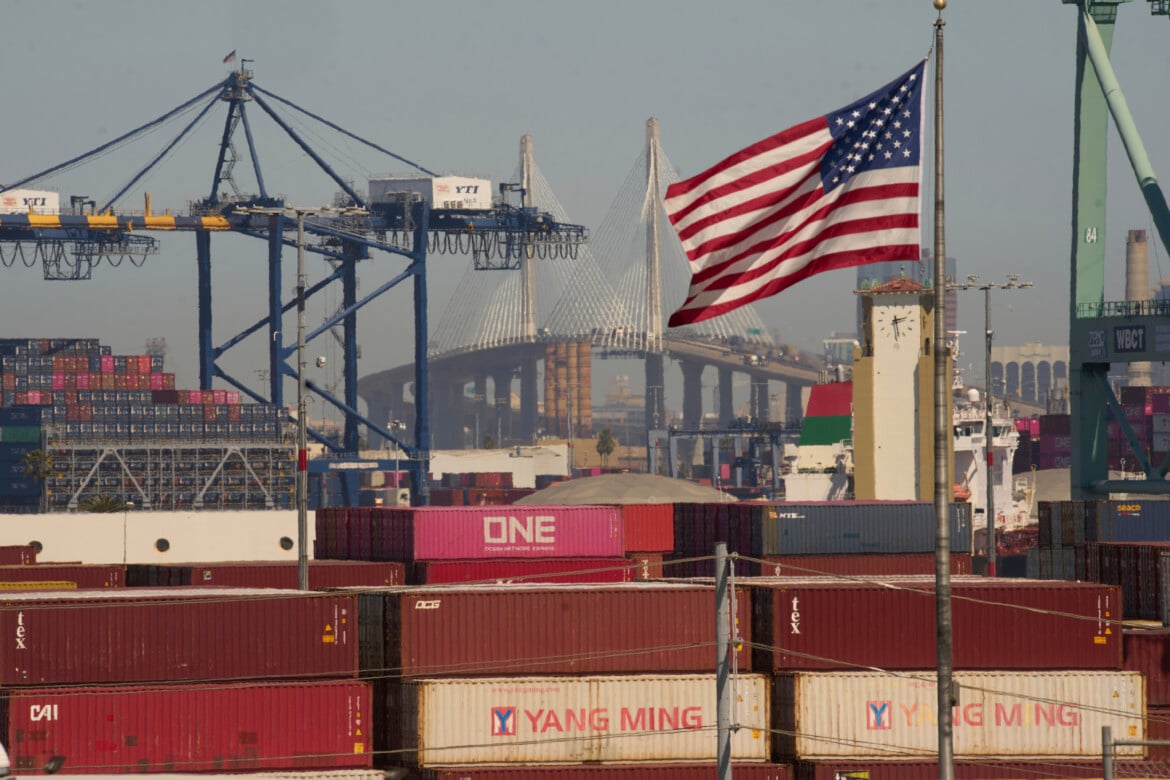Analysis
The systemic chaos unleashed by Washington
The logic of 30% tariffs against allies is to manufacture international disorder, the “systemic chaos” world-system scholars described decades ago, in which the actor who strikes first and hardest dominates the scene, at least for a while.

A slap in the face in place of polite diplomacy. Arm-twisting instead of agreed-upon rules.
Attacking one’s closest allies rather than one’s declared adversaries, hitting every weak point to paralyze the other side and forestall any counterpunch: that is the logic behind the 30 percent tariffs U.S. President Donald Trump announced on Saturday on imports from the European Union and Mexico. The measure is only the latest blow in a strategy he has pursued from day one.
The pauses and half-steps backward were never retreats; they were only an opportunity to take better aim. One won’t find an explanation for this policy in any textbook on international relations – or, still less, on economics. Its logic is to manufacture international disorder, the “systemic chaos” world-system scholars described decades ago, in which the actor who strikes first and hardest dominates the scene, at least for a while.
It matters little whether that advantage is fleeting, or whether NATO, global trade, or America’s ability to attract scientists and innovators collapses in the process. U.S. hegemony is in decline, and good manners will not resurrect it. It’s no wonder that Washington’s playbook now puts war front and center: air strikes on Iran, blanket support for Israel’s extermination campaign in Gaza, and an open-ended conflict in Ukraine.
At home, the new federal budget lays out both nuclear and conventional rearmament. To Europe, the White House is issuing marching orders: spend five percent of GDP on defense -largely to buy American kit, from nuclear-capable F-35s to Patriot batteries that Brussels will help pay for before they are shipped to Kyiv.
Washington does get some concrete benefits in this scenario. U.S. overseas arms sales hit $120 billion in 2024; deliveries to Europe alone rose 233 percent over the previous five-year period, giving the United States 43 percent of the global export market. On the trade front, June’s tariffs added $100 billion to federal coffers – about five percent of all tax revenue – and, on paper, wiped out the U.S. trade deficit. Yet none of this will be able to rebuild the real economy.
How, then, should Europe answer Trump’s slap in the face? The debate from Brussels to Rome is still stuck on the stale choice between tit-for-tat tariffs and hopes for fresh talks. Neither response manages to grasp the nature of the clash. The bully in the White House should be hit not on bourbon, but on software, not on Levi’s jeans but on finance, not on Harley-Davidsons but on green technologies.
Several practical options are already on the desks of the chief diplomats: levy taxes on U.S. service exports, force American digital platforms to pay full tax in Europe, and make EU rules on data protection, artificial intelligence, and the green transition the world’s de-facto standards. A Europe worthy of its history could seize the opening Trump’s disorder provides to rewrite global rules in its own interest: closing down the Irish, Luxembourg, and Dutch tax havens that shelter U.S. multinationals; limiting capital outflows to the U.S.; and curbing the leverage of U.S. private equity firms that dominate European industry.
Cracks in U.S. finance are visible already, with the jitters of the stock market and the flight from the dollar. Since January, the greenback has slipped 10% against a basket of major currencies – a fall unmatched since 1973, when the dollar cut its ties to gold and the monetary order was rebuilt from scratch.
Finance and the dollar – together with weapons – remain the twin pillars of American power. They are what Europe, and the broader world, must now reckon with. Here, naturally, what is needed is politics. Why not convene an EU-China-BRICS summit in Brussels – or Rome – to craft new trade avenues for all and sketch out some kind of international order that would serve not the playground bully in Washington, but the whole world?
Originally published at https://ilmanifesto.it/il-caos-sistemico-che-viene-dagli-usa on 2025-07-13
